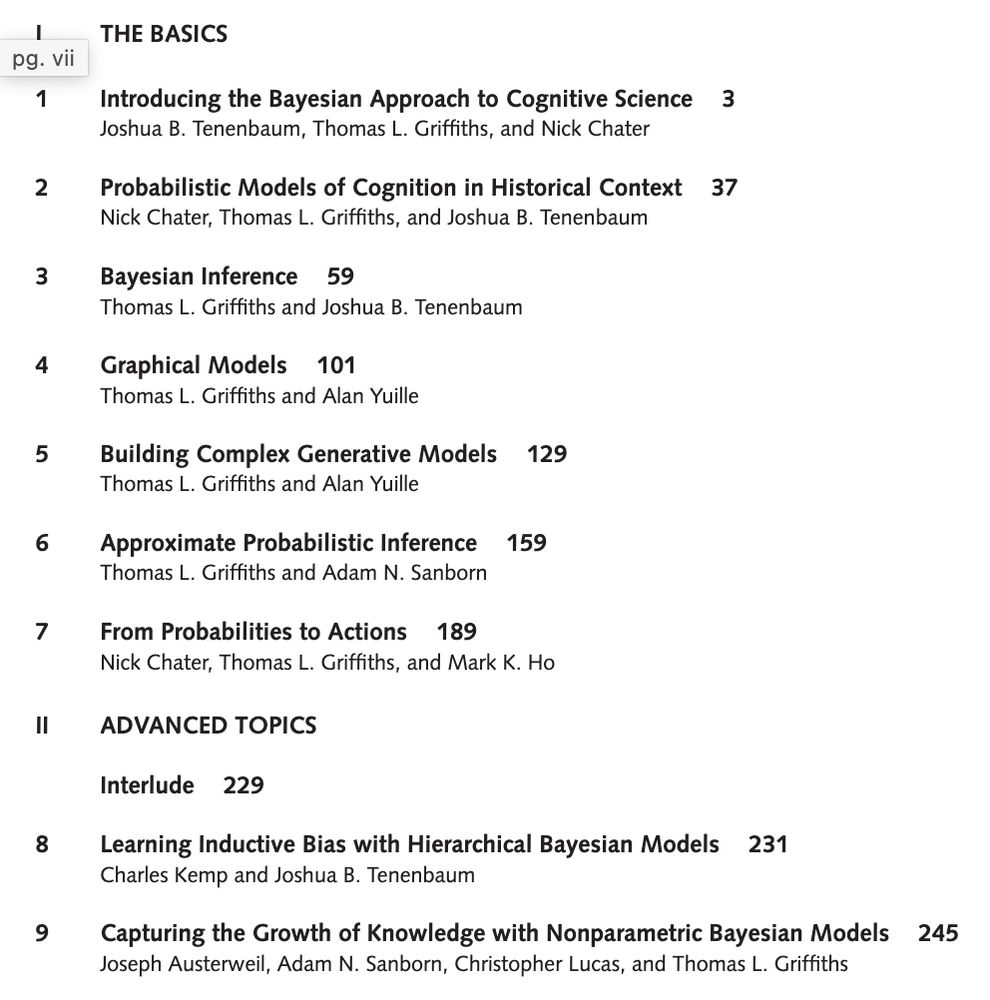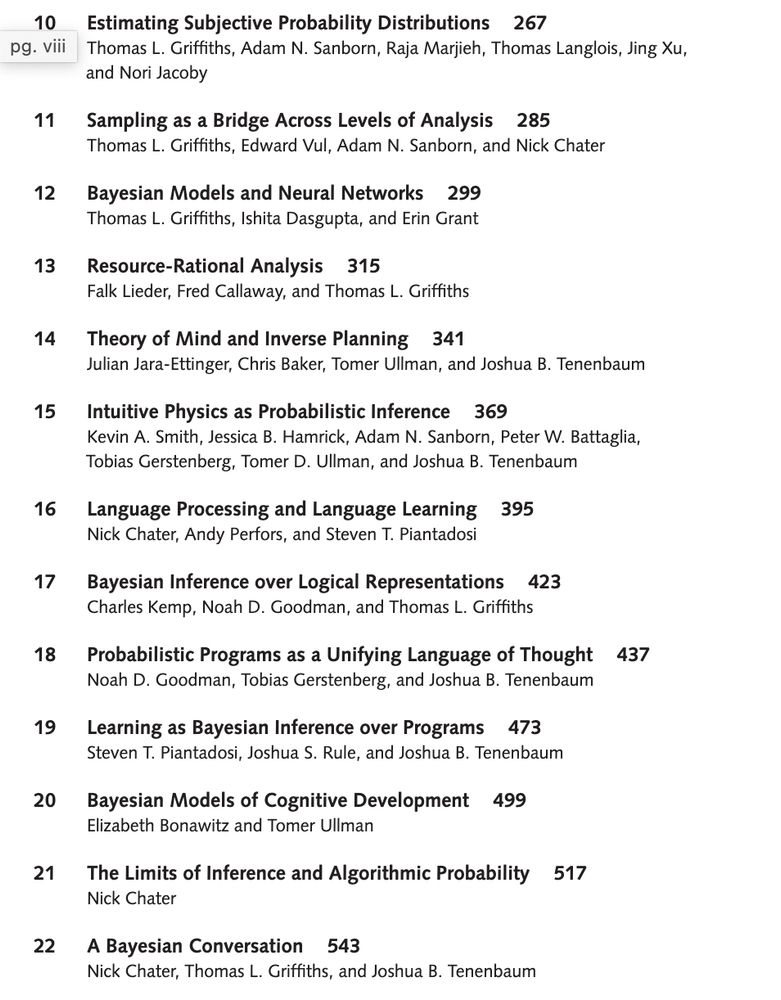Griffiths Computational Cognitive Science Lab
@cocoscilab.bsky.social
Tom Griffiths' Computational Cognitive Science Lab at Princeton. Studying the computational problems human minds have to solve.
(5/5) Thanks to the many contributors to the book! @markkho.bsky.social @norijacoby.bsky.social @eringrant.bsky.social @fredcallaway.bsky.social @tomerullman.bsky.social @jhamrick.bsky.social @tobigerstenberg.bsky.social @spiantado.bsky.social
@noahdgoodman.bsky.social @ebonawitz.bsky.social
@noahdgoodman.bsky.social @ebonawitz.bsky.social
November 19, 2024 at 9:33 PM
(5/5) Thanks to the many contributors to the book! @markkho.bsky.social @norijacoby.bsky.social @eringrant.bsky.social @fredcallaway.bsky.social @tomerullman.bsky.social @jhamrick.bsky.social @tobigerstenberg.bsky.social @spiantado.bsky.social
@noahdgoodman.bsky.social @ebonawitz.bsky.social
@noahdgoodman.bsky.social @ebonawitz.bsky.social
(4/5) Here's the table of contents. An Open Access version of the book is available through the MIT Press website.


November 19, 2024 at 9:33 PM
(4/5) Here's the table of contents. An Open Access version of the book is available through the MIT Press website.
(3/5) That same perspective is valuable for understanding modern AI systems. In particular, Bayesian models highlight the inductive biases that make it possible for humans to learn from small amounts of data, and give us tools for building machines with the same capacity.
November 19, 2024 at 9:33 PM
(3/5) That same perspective is valuable for understanding modern AI systems. In particular, Bayesian models highlight the inductive biases that make it possible for humans to learn from small amounts of data, and give us tools for building machines with the same capacity.
(2/5) Bayesian models start by considering the abstract computational problems intelligent systems have to solve and then identifying their optimal solutions. Those solutions can help us understand why people do the things we do.
November 19, 2024 at 9:33 PM
(2/5) Bayesian models start by considering the abstract computational problems intelligent systems have to solve and then identifying their optimal solutions. Those solutions can help us understand why people do the things we do.

